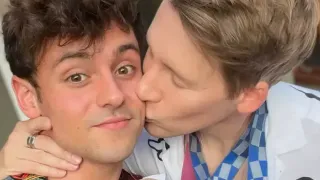October 23, 2015
National Day of Action to End Violence Against Women Living with HIV
EDGE null READ TIME: 3 MIN.
More than 55 percent of the approximately 300,000 women living with HIV (WLHIV) in the U.S. have experienced violence or abuse at the hands of an intimate partner. Thirty percent of WLHIV suffer from post-traumatic stress disorder (PTSD) -- five times the rate among the general female population. Abuse and trauma presents a tremendous barrier to care and treatment -- in fact, according to data from the Women's HIV Program at UCSF, WLHIV are today far more likely to die from the effects of lifetime trauma than from HIV disease itself.
To bring attention to this epidemic of violence and to put forward solutions, Positive Women's Network-USA (PWN-USA) has called for a second National Day of Action to End Violence Against Women Living with HIV on October 23, during Domestic Violence Awareness Month. Eighty-five diverse organizations, including a national array of HIV organizations and others such as the National Network to End Domestic Violence, the Praxis Project, the Sexual Information and Education Council of the U.S. and Forward Together, have signed on as partners or endorsers for the Day of Action.
"The goal of the Day of Action is not just to raise awareness -- though that is a critical first step -- but to move toward solutions," said Naina Khanna, Executive Director of PWN-USA. "While the White House Office of National AIDS Policy has recognized the importance of addressing violence and trauma for women living with HIV, there is still a tremendous amount of work to do, both to eliminate violence and to address the effects of trauma in healthcare settings."
In addition to a variety of social media activities happening on and before October 23, at least 16 in-person events are happening in 15 cities throughout the U.S., including Atlanta, DC, Denver, Houston, Philadelphia, and Oakland. Many of the events feature a screening of a new film from the Kaiser Family Foundation, "Empowered," released this Tuesday as part of the Greater Than AIDS campaign. The film highlights five women living with HIV, all members of PWN-USA, who have survived intimate partner violence.
"There are many evidence-based interventions to heal from trauma, and it is important to know that treatments for substance abuse and depression are far more effective if trauma is concurrently treated," said Edward L. Machtinger, MD, Director of the UCSF Women's HIV Program. "Clinics receiving funding through the federal Ryan White HIV/AIDS Program need to be educated, supported, and resourced to integrate these interventions into care, and then held accountable for preventable trauma-related deaths. In this way, we can raise the bar on what we consider the standard of care in Ryan White clinics so that we address what is actually causing the most suffering and death."
Another part of the solution, advocates say, is eliminating harmful stigma that normalizes and perpetuates violence, and repealing HIV-related criminalization laws based on hysteria and myths about HIV transmission. Many states prosecute acts such as spitting or performing oral sex that carry no risk of HIV transmission. This sends a message to the public that people with HIV are inherently dangerous, too often fueling violence -- like the two high-profile, brutal murders of women following disclosure of their HIV status, prompting
PWN-USA to call for the first National Day of Action to End Violence Against WLHIV last year.
Since the 2014 day of action, federal agencies, providers and advocacy organizations have shown an increased commitment to focus on this issue. The urgency to address the intersections of violence, trauma and HIV is growing, with more events and more partners and endorsers for this year's day of action. Supporters of the day of action hope their message reaches the Health Resources and Services Administration HIV/AIDS Bureau as they finalize plans for implementing the new National HIV/AIDS Strategy, due in early December.
"HRSA HAB is in a unique and optimal position to serve as a beacon in this movement to expand trauma awareness and healing," says Khanna. "Addressing trauma in healthcare settings is the next frontier to improve quality of life, engagement in care, and health outcomes for people living with HIV."
For more information, visit https://pwnusa.wordpress.com/upcoming-events/upcoming-events/doa/






